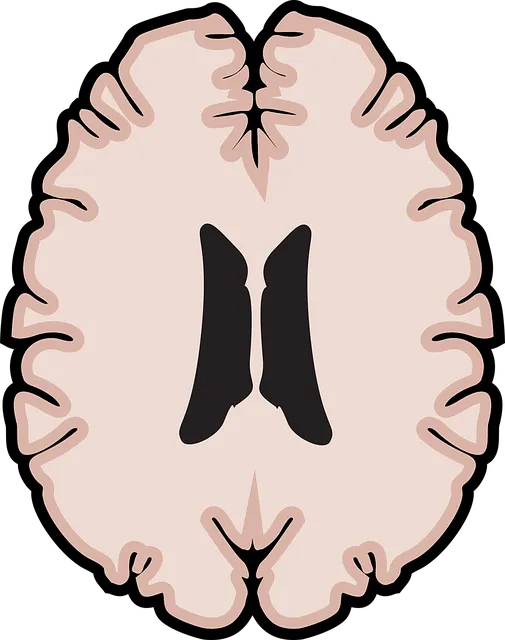Understanding mental health policies, especially stigma reduction initiatives, is crucial for addressing healthcare disparities. In communities like Northglenn, where access to quality services varies, policies shape public perceptions and care availability. Initiatives promoting emotional intelligence and mental wellness journaling have shown positive impacts. Kaiser Northglenn, a leading provider, offers tailored treatments including Compassion Cultivation Practices and Stress Management techniques. Advocacy is key to improving mental health care access; amplifying diverse voices drives attention to community needs. An effective policy should ensure affordable therapy services, prevent provider burnout, promote early intervention, and integrate trauma support, fostering a healthier, more resilient community. Research, data collection, and strategic policy analysis are vital for successful advocacy.
“Mental health policy analysis and advocacy are vital components in ensuring equitable access to quality care. This article explores the intricate relationship between mental healthcare and public policy, focusing on the impact of Kaiser’s Northglenn location. We analyze their services, dissecting whether they provide effective therapy options for the community. Additionally, we highlight the transformative power of advocacy in improving mental health support, while offering insights into crafting comprehensive mental health policies. Discover key strategies for analysis and learn how these contribute to a healthier society.”
- Understanding Mental Health Policy and Its Impact
- Analyzing Kaiser's Northglenn Location: A Closer Look
- The Role of Advocacy in Improving Access to Care
- Key Components of an Effective Mental Health Policy
- Strategies for Effective Mental Health Policy Analysis
Understanding Mental Health Policy and Its Impact

Understanding Mental Health Policy is paramount to navigating the complex landscape of healthcare access and quality. This includes recognizing how policies shape public perceptions, such as addressing the Mental Illness Stigma Reduction Efforts, which can significantly impact individuals’ willingness to seek help. By examining these policies, we gain insights into why some communities, like Northglenn, might have varying levels of accessible and effective mental health services, including whether Kaiser has good therapists in their area.
Policy analysis reveals the direct correlation between supportive legislation and improved emotional well-being. For instance, initiatives promoting Emotional Intelligence in schools and workplaces can foster healthier relationships and reduce instances of mental distress. Similarly, encouraging Mental Wellness Journaling Exercises as a preventive measure can help individuals process emotions and build resilience. Ultimately, understanding these policy implications is crucial for advocating effective strategies that combat mental health challenges and promote overall well-being in communities like Northglenn.
Analyzing Kaiser's Northglenn Location: A Closer Look

The Kaiser Northglenn location stands out as a beacon of hope for individuals seeking mental health services. With a dedicated team of professionals, this facility offers a comprehensive range of treatments tailored to diverse needs. When it comes to questioning does Kaiser have good therapists in Northglenn, the answer is undoubtedly yes. The center prioritizes patient care through evidence-based practices, ensuring that each individual receives personalized attention.
A unique aspect of Kaiser’s approach involves integrating Compassion Cultivation Practices, which focus on fostering empathy and understanding. Additionally, they provide guidance for Mental Wellness Journaling Exercises, empowering patients to track their progress and insights. Moreover, the facility’s emphasis on Stress Management techniques equips clients with valuable tools to navigate life’s challenges.
The Role of Advocacy in Improving Access to Care

Advocacy plays a pivotal role in enhancing access to mental health care, particularly in areas like Northglenn where ensuring quality services might be a challenge. By amplifying the voices of individuals seeking support and those who have been previously underserved, advocates can bring much-needed attention to the community’s unique needs. This is especially relevant when considering questions like “Does Kaiser have good therapists in Northglenn?” as it pushes for more comprehensive options within existing healthcare networks.
Effective advocacy strategies extend beyond simply raising awareness; they encompass initiatives such as Burnout Prevention Strategies for Healthcare Providers, which aim to support professionals dedicated to mental health services. By promoting Emotional Well-being Promotion Techniques and implementing successful Community Outreach Program Implementations, advocates can foster a holistic approach to mental healthcare accessibility. These efforts collectively contribute to creating a more inclusive and responsive system, ensuring that individuals in Northglenn and similar areas receive the care they deserve.
Key Components of an Effective Mental Health Policy

An effective mental health policy is multifaceted and crucial for communities like Northglenn, where access to quality care can greatly impact residents’ well-being. Key components include comprehensive coverage that ensures affordable therapy services, such as those provided by reputable organizations like Kaiser. This accessibility paves the way for individuals seeking support, including trauma survivors, to receive consistent care.
Moreover, policies should emphasize prevention and early intervention strategies, promoting Self-Care Routine Development for Better Mental Health. By integrating Trauma Support Services, policies can address the unique needs of those affected by traumatic events, fostering a healthier and more resilient community. Effective advocacy for mental health policy analysis results in tailored programs that cater to diverse populations, ultimately improving overall mental wellness.
Strategies for Effective Mental Health Policy Analysis

When conducting mental health policy analysis, a strategic approach is essential to ensure effective advocacy. One key strategy involves thorough research and data collection. Understanding the current landscape of mental healthcare services in areas like Northglenn, where organizations like Kaiser potentially offer specialized therapy, is crucial. Examining service accessibility, therapist availability, and patient outcomes can highlight gaps and areas for improvement.
Additionally, incorporating Stress Reduction Methods and Burnout Prevention techniques into policy discussions can be a game-changer. Promoting Stress Management Workshops Organization within communities can empower individuals to take charge of their mental well-being. By advocating for policies that support these initiatives, policymakers can contribute to creating a more resilient and healthy population, potentially reducing the burden on healthcare services, including those offered by providers like Kaiser in Northglenn.
Mental health policy analysis and advocacy are essential components in ensuring equitable access to quality care. By understanding the impact of policies and advocating for change, we can improve mental healthcare services, such as those offered by Kaiser’s Northglenn location. An effective policy should include strategies to enhance accessibility, reduce stigma, and provide comprehensive support. Through rigorous analysis and community engagement, we can revolutionize mental health outcomes and ensure that does Kaiser have good therapists Northglenn is met with affirmative answers, fostering a healthier society for all.






